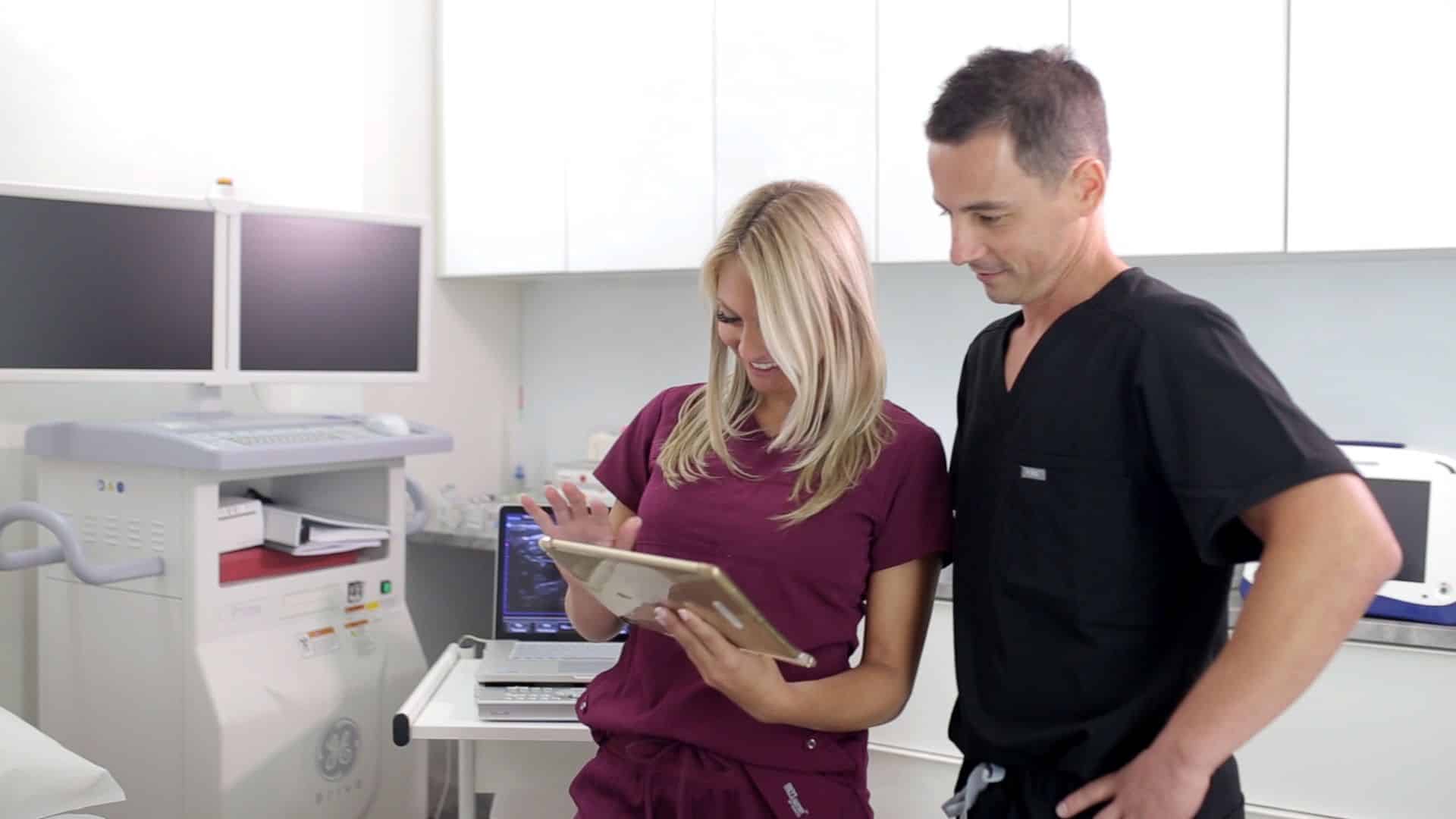Can’t Sleep Because of Sciatica Pain?
September 13, 2021
Renowned Sciatica Pain Doctor in Hackensack Answers 6 Important Questions
The sciatic nerve is the longest nerve of the human body. It originates from the base of your spine, travels through your hips and buttocks, and ends at the back of each leg. Irritation of the sciatic nerve is usually what triggers sciatica pain, and a herniated disc in the lower back is the most common reason for such a condition.
Another example is degenerative disc disease. Besides pain in the lower back, sciatica is characterized by shooting pain that travels through the nerve, which can range from moderate to severe, and it usually affects only one side of the body. Hip pain and leg pain are commonly experienced sciatica symptoms.

When you are dealing with sciatica, trying to get a good rest at night can be challenging. Some positions will place additional stress on your already sensitive nerve, causing symptoms such as pain in the leg or foot to shoot up. Certain positions, on the other hand, are less prone to produce discomfort.
If you are looking to learn how to sleep so that you don’t cause additional nerve pain, you have come to the right place! Dr Laura Lombardi – a renowned sciatica pain doctor in Hackensack is here to answer a series of questions about sciatic pain and a good night’s sleep, so keep reading to find out more!
What are the best sleeping positions for sciatic pain?
It could take some trial and error to find the optimal sleeping position for sciatica relief. Dr Laura Lombardi recommends you find a natural position that allows the spine to relax.

If sciatica gives you trouble during the night, try one of the following sleeping positions and make the recommended adjustments:
Sleeping on the side
Sleeping on one side can take some of the stress off the sciatic nerve and reduce discomfort. When you lie down, it is recommended that you do so with the afflicted part on top. It may help to place a small pillow or folded towel between your waist and the mattress if you notice there is too much space there and your spine bends to one side.
Doctors recommend placing a pillow between your knees as well, to keep your spine and pelvis aligned.
Sleeping on the back
Lying on your back allows your weight to be distributed evenly along the back. Placing a large cushion beneath your knees can help keep the natural curvature of your spine and will relax your hip and leg muscles as well.
It may also help to place a rolled towel under the lumbar region, to further support the natural posture of your spine.
On some occasions, a soft mattress may hurt your back even more. If you are unable to replace your mattress with one that provides more support, sleeping on the floor may be the only thing that helps alleviate pain, as it keeps the vertebrae in proper alignment. Use a yoga mat and place it on the floor, then try sleeping on the side or the back following the tips above.
How about sciatica during pregnancy?
Throughout pregnancy, back doctors frequently advise sleeping on one side. Because it is considered that sleeping on your left side allows for optimum blood flow via the inferior vena cava, it is often considered the optimal posture during pregnancy as well. However, according to multiple studies analyzed during the past few years, sleeping on your left or right side is equally safe for you and the baby.
If you have sciatica, you might notice that resting on your non-injured side helps alleviate your pain. Placing a cushion between your midsection and the mattress, or between your knees, can also take some of the pressure off the damaged nerve.
Are there any sleeping positions I should avoid?
If you are struggling with pain in the sciatic nerve or any other type of lower back pain for that matter, it’s typically suggested that you don’t sleep on your stomach, even if you find it comfortable. Your spine curves toward the mattress while you lie on your stomach. If you sleep on a soft mattress, this curvature might put even more stress on your muscles and joints, ultimately affecting the nerve.
It’s advisable to avoid bending your spine or hips when sleeping, no matter what position you’re in because this can put pressure on your sciatic nerve.
Do you have any advice on how to relieve pain while sleeping?
Getting proper sleep is very important, especially when the body is dealing with inflammation so that you can heal faster. If you can’t seem to find a comfortable position, consider following the tips below:
- Switch to a firmer mattress: A mattress that is too soft might enable your body to sink into it, causing your spine to become misaligned. The best mattresses for enhancing sleep quality and correct spinal alignment seem to be medium-firm mattresses.
- Try plywood: Place a plywood board between your mattress and box spring if the mattress is too soft. You may also consider sleeping on the floor with your mattress.
- Invest in a body pillow: A body pillow can help you avoid sleeping on your stomach or turning Consider doing some yoga or stretching before sleep: Light stretching or yoga as part of your pre-bed routine might encourage your muscles to relax and relieve nerve tension.
What causes sciatic pain to worsen during sleep?
When patients with sciatica visit us, they often tell us that their symptoms worsen during sleep. But why does it happen? Lying down is proven to put more pressure on the inflamed nerve, particularly if you sleep on a soft mattress that encourages your spine to flex while you sleep. This means your sleep won’t be a comfortable one and pain will continue to bother you.
Should I visit a doctor?
If you’ve been experiencing sciatica pain for more than a week, you should see a doctor for proper medical advice. They can clearly identify the source of your sciatica pain and provide the best pain management options.
Fortunately, our highly trained, board-certified sciatica doctors in Hackensack, New Jersey are here to help you out! We specialize in minimally invasive treatment, including epidural steroid injections, to make sure your pain goes away as soon as possible! Book an appointment at our conveniently-placed pain clinics in Paramus on Route 17, near the Paramus Park Mall, in Clifton, NJ, on Route 46 E, past the Ford dealership, in West Orange, near the Essex Country Club, and in Woodland Park clinic, on McBride Avenue, right next to Woodland Park Dialysis Center.
Book a Consultation
Scheduling a consultation with one of our pain treatment specialists is one of the best ways to determine the proper solution for pain relief.
Meet Our Team of Back Pain Specialists
All of our Pain Doctors in New Jersey are Harvard Trained and Board Certified in Pain Management

Back Pain Doctor Clifton & West Orange NJ
Dr. George Hanna
Dr. Hanna is a Harvard Trained back specialist in New Jersey and New York. He serves as Medical Director of Pain Management.

Back Pain Doctor Clifton & West Orange NJ
Dr. Laura Lombardi
Dr. Lombardi is a Harvard Trained back pain treatment doctor, currently seeing patients in Clifton and West Orange, New Jersey.

Back Pain Doctor Clifton & West Orange NJ
Dr. Shane Volney
Dr. Volney is a Harvard Trained back treatment doctor seeing patients in the NJ areas of Clifton & West Orange, and in NYC.

Back Pain Doctor Clifton & West Orange NJ
Dr. Michael Nguyen
Dr. Nguyen is Harvard Trained and Board Certified in Pain Management. His pain center accepts major medical insurances and Medicare.

Dr. George Hanna

Dr. Laura Lombardi
Dr. Lombardi is a Harvard Trained back pain treatment doctor, currently seeing patients in Clifton and West Orange, and Paramus New Jersey.

Dr. Shane Volney
Dr. Volney is a Harvard Trained back treatment doctor seeing patients in the NJ areas of Clifton & West Orange, and in NYC.

Dr. Michael Nguyen
Dr. Nguyen is Harvard Trained and Board Certified in Pain Management. His pain center accepts major medical insurances and Medicare.
